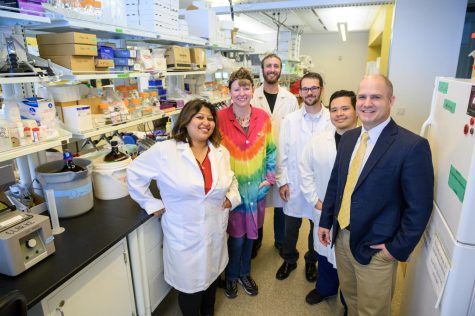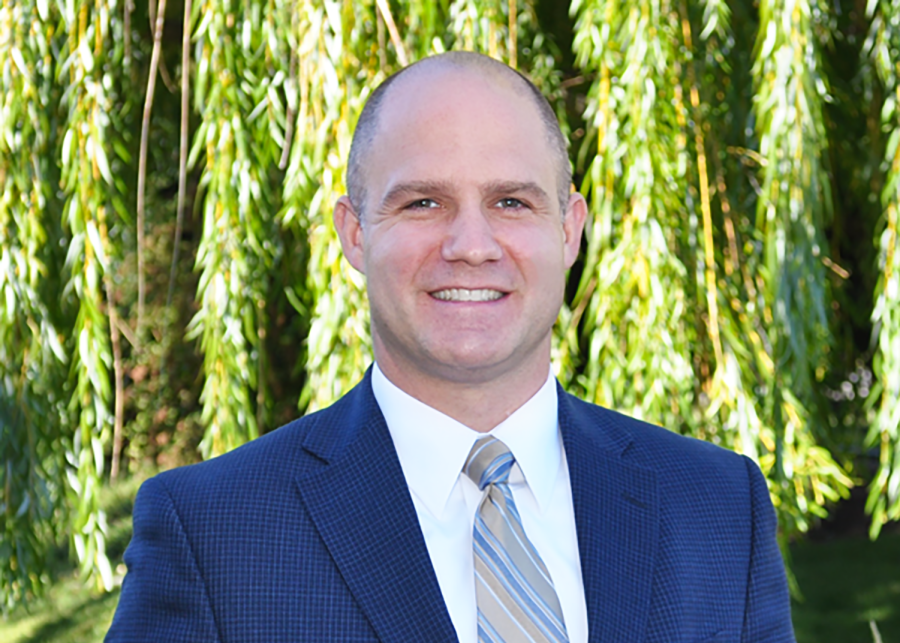WSU Toxicologist receives Society of Toxicology Achievement Award
Professor Clarke is described by colleagues as dedicated, motivated, driven and enthusiastic
Clarke has been awarded the Society of Toxicology’s Achievement Award this year
February 10, 2023
“It is certainly a great honor to win this award,” said John Clarke, WSU pharmaceutical sciences associate professor. “There is a long list of great toxicologists who have won this award.”
Clarke has worked at WSU for almost seven years. His interest in pharmaceutical sciences began during his time studying at Oregon State University.
“I did chemo prevention with natural products. That’s obviously where we get a lot of drugs from. I also got my interest in toxicology from there,” he said. “I started to focus more on liver and how the liver handles drugs. All of that came together for the research I do now.”
Clarke has been awarded the Society of Toxicology Achievement Award this year. The award is given to toxicologists within 15 years of receiving their advanced degree, he said.
Clarke said he first found out about being given the award around the middle of January. He will be officially presented the award at the SOT’s annual meeting this March in Nashville, Tennessee.
The main area of his research today focuses on looking at how the body handles foreign compounds and what kind of exposures lead to different toxicities, Clarke said.
“We do a lot of research in the area of pharmacokinetics, so how the body handles drugs, and what are some of the factors that might affect how the body might handle that drug,” Clarke said. “So we look at, say, a disease, and how they might affect pharmacokinetics.”
In addition, Clarke said on the pharmacology side of his research, some of his work involves observing complex interactions involving more than one factor, such as someone with liver disease taking multiple drugs, as well as dietary supplements that they purchase over the counter.
On the toxicology side, the biggest thing he has been working on is looking at how cyanotoxins might affect the progression of fatty liver disease, he said. This is one factor that may have won him the award, as it focuses on the toxicologist’s body of work as a whole, Clarke said.

Pharmaceutical sciences professor Mary Paine has worked at WSU for about 10 years and is a colleague of Clarke.
“Pharmacokinetics is my overall main focus,” Paine said. “I’ve worked with [Clarke] since he joined WSU.”
Paine said she has worked with Clarke on projects focused on natural products and drug interactions. She described working with him as a positive experience.
“I can give you a number of words to describe him: collegial, dedicated, motivated, driven, enthusiastic,” she said. “He’s an awesome colleague.”
Paine said Clarke’s research has focused on discovering how drugs can adversely affect people. His work on nonalcoholic fatty liver disease is a highlight of his research.
Clarke said in the future, some of the opportunities that lie ahead are that pharmaceutical scientists have the opportunity to model and predict pharmaceutical interactions.
“As a reductionist scientist we really want to try to boil it down as much as possible, but we really have to understand the complexity of human variability,” he said.
Clarke said he recommends any students interested in pharmaceutical sciences know what a research career looks like and be ready for a lot of experimentation and failure.
“For pharmaceutical sciences and toxicology, it’s a love of understanding how our body handles drugs and their good and bad effects,” Clarke said. “It’s the altruistic, ‘I want to help people who are sick,’ that drive, that passion for understanding that side of science is what keeps you going”
















